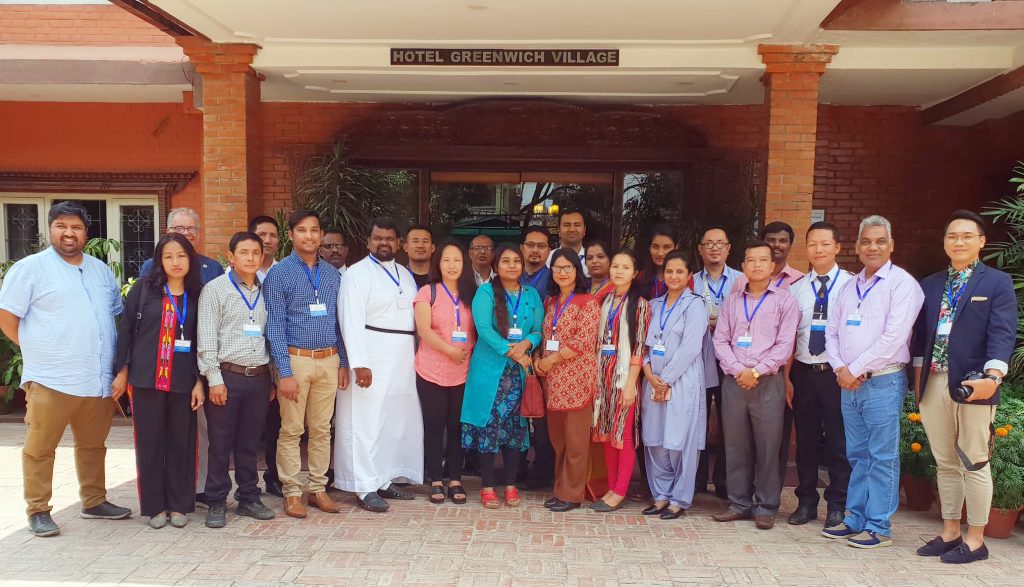CCA’s Skill Building Training focuses on HIV and AIDS Advocacy by Churches
 Participants of the Skill Building Workshop on Churches Effective Response on HIV & AIDS in South Asia Sub-region
Participants of the Skill Building Workshop on Churches Effective Response on HIV & AIDS in South Asia Sub-region
The Christian Conference of Asia (CCA) organized a skill-building training workshop for prospective facilitators of HIV and AIDS advocacy from churches and related organizations in South Asia.
Organized in collaboration with the National Council of Churches in Nepal (NCCN), as part of the special project Action Together in Combating HIV and AIDS in Asia (ATCHAA), the training was held from 21 to 23 June 2018 in Kathmandu, Nepal.
The training workshop was attended by twenty six participants who represented churches and ecumenical organizations from five South Asian countries.
A similar activity of skill-building training was conducted in March 2018 for the participants from the Southeast Asia sub-region.
R.C. Acharya, General Secretary of the National Council of Churches in Nepal (NCCN) welcomed the participants and expressed gratitude to CCA for choosing NCCN to be the host.
Acharya considered the workshop held in Nepal to be a great opportunity for the churches in the country to connect with their neighboring countries and to strengthen their sub-regional ecumenical partnership while addressing the growing menace of HIV and AIDS.
Dr. Ruben Del Prado, Country Director of UNAIDS Nepal presented an overview on the HIV and AIDS situation in South Asia. He expressed UNAIDS’ appreciation to be part of CCA, a faith-based organization’s training programme focusing the faith-based communities on HIV and AIDS advocacy.
Dr. Prado added that such initiatives of CCA would be of great help in contributing to the sustainable development goal.
The participants who had undergone a participatory learning process shared their work experiences in responding to HIV and AIDS from their own contexts. They emphasized that churches should reflect on their work and assess their capacity in responding effectively.
Dr. Mathews George Chunakara, General Secretary of CCA stated that CCA’s special focus on HIV and AIDS activities such as skill-building training for church workers on advocacy was part of CCA’s ongoing initiatives to combat the growing menace of HIV and AIDS in Asia.
“The churches with deep roots in most countries in Asia would be in a much better position to play important roles in reducing stigma, discrimination, prevention, care and support for people living with HIV and AIDS”, added the CCA General Secretary.
The participants expressed their commitment to actively engage their churches and communities in journeying together with the ‘People Living with HIV and AIDS’.
Several follow-up activities have been planned for initiating advocacy by local churches and national ecumenical councils in different South Asian countries.










